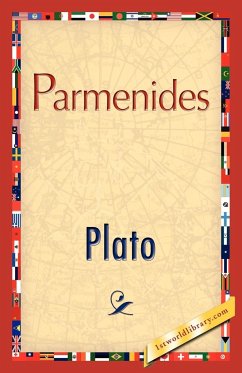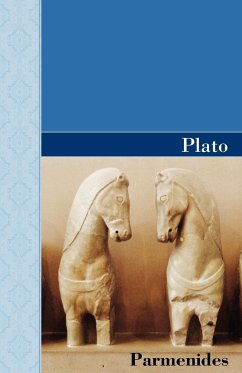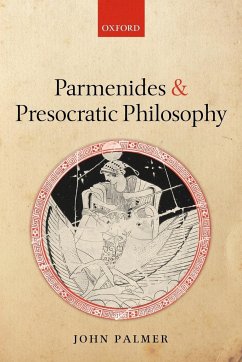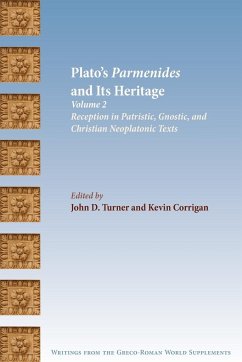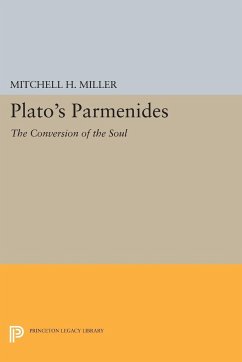
Platons Parmenides Als Dialektisches Kunstwerk (1821)
Versandkostenfrei!
Versandfertig in 1-2 Wochen
25,99 €
inkl. MwSt.

PAYBACK Punkte
13 °P sammeln!
Platons Parmenides als dialektisches Kunstwerk (1821) ist ein Buch, das sich mit dem Werk des antiken griechischen Philosophen Plato und seinem Dialog Parmenides auseinandersetzt. Der Autor untersucht die Struktur des Dialogs und zeigt auf, wie Plato eine dialektische Methode verwendet, um die Wahrheit zu finden.Das Buch ist in mehrere Abschnitte unterteilt, in denen der Autor verschiedene Aspekte des Dialogs untersucht. Er analysiert die Argumente und Gegenargumente, die von den Charakteren im Dialog vorgebracht werden, und zeigt auf, wie Plato die Dialektik als Werkzeug einsetzt, um die Wahr...
Platons Parmenides als dialektisches Kunstwerk (1821) ist ein Buch, das sich mit dem Werk des antiken griechischen Philosophen Plato und seinem Dialog Parmenides auseinandersetzt. Der Autor untersucht die Struktur des Dialogs und zeigt auf, wie Plato eine dialektische Methode verwendet, um die Wahrheit zu finden.Das Buch ist in mehrere Abschnitte unterteilt, in denen der Autor verschiedene Aspekte des Dialogs untersucht. Er analysiert die Argumente und Gegenargumente, die von den Charakteren im Dialog vorgebracht werden, und zeigt auf, wie Plato die Dialektik als Werkzeug einsetzt, um die Wahrheit zu finden.Der Autor geht auch auf die Bedeutung von Parmenides in der Philosophiegeschichte ein und zeigt auf, wie Plato sich auf die Ideen des antiken Philosophen bezieht. Er untersucht auch die Rolle von Parmenides in der platonischen Philosophie und zeigt auf, wie der Dialog dazu beitr¿¿¿¿¿gt, das Verst¿¿¿¿¿ndnis von Platons Philosophie zu vertiefen.Insgesamt ist Platons Parmenides als dialektisches Kunstwerk (1821) ein wichtiges Werk f¿¿¿¿¿r alle, die sich f¿¿¿¿¿r die Philosophiegeschichte und insbesondere f¿¿¿¿¿r die Werke von Plato interessieren. Es bietet eine detaillierte Analyse des Dialogs und zeigt auf, wie Plato die Dialektik als Werkzeug einsetzt, um die Wahrheit zu finden.This scarce antiquarian book is a facsimile reprint of the old original and may contain some imperfections such as library marks and notations. Because we believe this work is culturally important, we have made it available as part of our commitment for protecting, preserving, and promoting the world's literature in affordable, high quality, modern editions, that are true to their original work.





